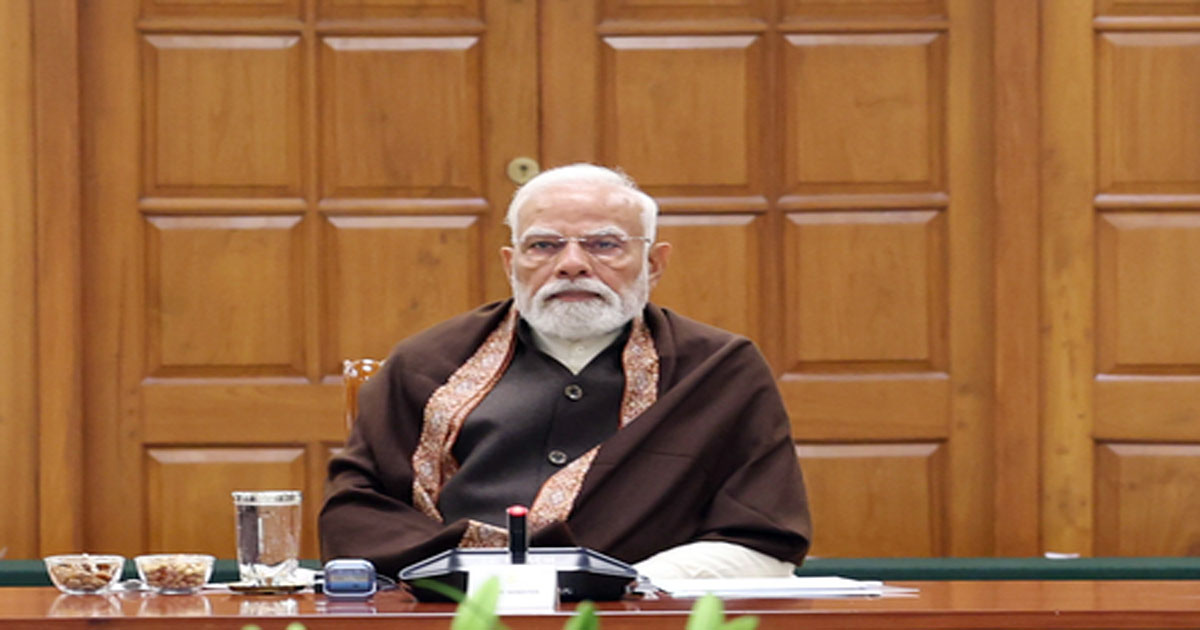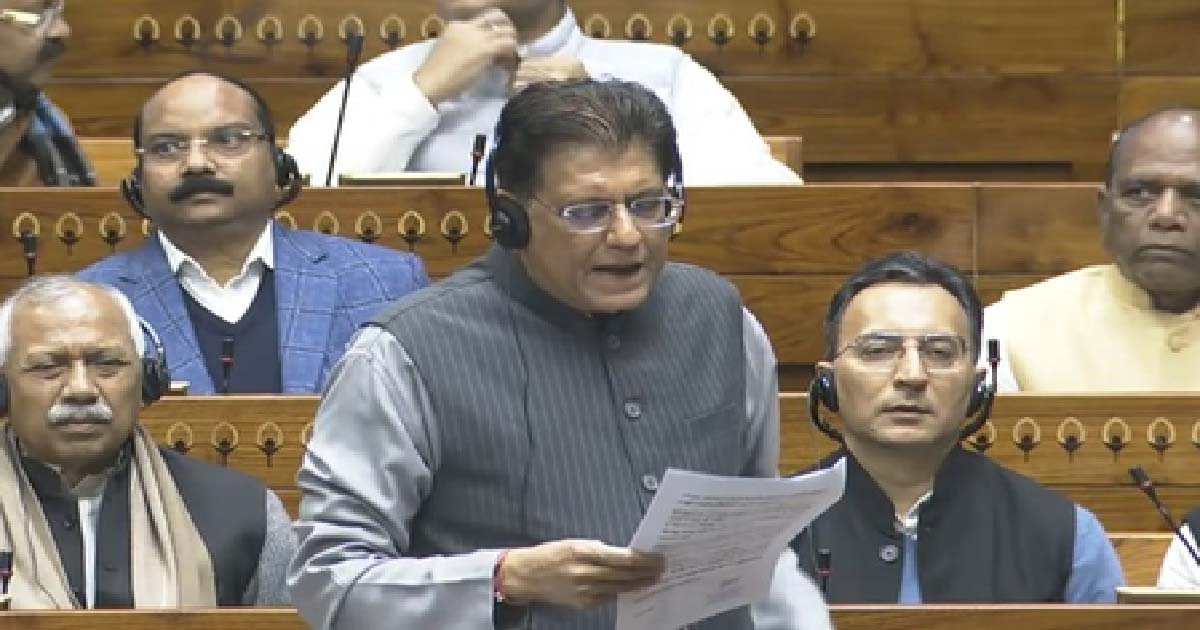International News
India leverages water resources as strategic tool to tighten noose around ‘rogue state’ Pakistan

New Delhi, April 24: India’s suspension of the Indus Waters Treaty (IWT) is not only morally justified in light of continuing cross-border terrorism but also legally defensible due to repeated procedural violations by Pakistan, several experts reckoned on Thursday.
The action, they said, is a sovereign right exercised to protect national interest, security, and the integrity of international agreements, which depend on reciprocity and mutual adherence.
“This step signals that while India has always honoured its international commitments, it will not be taken for granted when the other party – a rogue state like Pakistan – repeatedly breaches the spirit and terms of the agreement,” an analyst opined.
Under the Indus Waters Treaty signed between India and Pakistan in 1960, waters of three rivers – Ravi, Sutlej and Beas – averaging around 33 Million Acre Feet (MAF) were allocated to India for exclusive use. The waters of Western rivers – Indus, Jhelum, and Chenab – averaging to around 135 MAF were allocated to Pakistan except for specified domestic, non-consumptive and agricultural use permitted to India as provided in the Treaty.
Last August, India had served a formal notice to Pakistan seeking a review and modification of the IWT citing “fundamental and unforeseen changes in circumstances” that require a reassessment of obligations.
In the notice, India had highlighted that, under Article XII(3) of the IWT, its provision may from time to time be modified by a duly ratified Treaty concluded for that purpose between the two governments.
India’s notification highlighted fundamental and unforeseen changes in circumstances that require a reassessment of obligations under various Articles of the Treaty. Among various concerns, important ones included change in population demographics; environmental issues – need to accelerate development of clean energy to meet India’s emission targets; impact of persistent cross border terrorism, etc.
However, despite India’s repeated warnings, Pakistan was involved in serious violation of treaty protocols.
The eventual suspension of the treaty came only after persistent violations and was triggered further by national security threats, such as Tuesday’s Pahalgam terror attack, which has claimed 26 innocent lives.
The most critical breach occurred in 2016, when Pakistan unilaterally bypassed the treaty’s graded mechanism of dispute resolution outlined under Article IX of the IWT. This article mandates a stepwise escalation — from technical discussions to neutral expert adjudication and finally, if needed, to a Court of Arbitration.
In 2015, Pakistan initially requested a neutral expert to examine technical objections to India’s Kishanganga and Ratle Hydro Electric Projects. However, it withdrew this request next year and unilaterally approached the Court of Arbitration, violating the agreed dispute-resolution protocol. This deliberate deviation undermined the legal sanctity of the treaty and indicated a pattern of weaponizing legal mechanisms for political ends.
Recognising this breach, India issued a formal notice to Pakistan on January 25, 2023, calling for the modification of the treaty to ensure that the dispute resolution process could no longer be exploited unilaterally. By exhausting diplomatic options and adhering to procedural fairness, India demonstrated responsibility and restraint.
Pakistan has also invoked the treaty’s dispute resolution provisions three times, not always in good faith.
The first instance involved objections to a hydropower project on the Chenab River in India-administered Kashmir. While Pakistan raised concerns that the project could give Indian engineers undue control over river flows, the World Bank-appointed neutral expert ruled in favour of India in 2007, validating the project’s design and sediment management as being in line with international best practices.
India has already set the stage to tighten the noose around Pakistan with several projects.
The Kishanganga Hydroelectric Project on a tributary of the Jhelum was commissioned in 2018 and diverts water from the Kishanganga River to a power plant in the Jhelum basin via a 23 km tunnel.
The Ratle Hydroelectric Project on Chenab was revived in 2021 with an 850 MW capacity as Pakistan raised concerns over potential flow manipulation.
The Tulbul Navigation Project on Jhelum was also never really off the table since the Uri attack in 2016 and can regulate water flow through a navigational lock-cum-control structure.
The Shahpurkandi Dam on Ravi was cleared in 2018 and completed in early 2024. It blocks surplus water from flowing into Pakistan, enhancing irrigation and power generation in India.
Similarly, the Ujh Multipurpose Project on a tributary of the Ravi, which was announced in 2020 is currently in the planning stage, combines storage, irrigation, and hydroelectric goals to cut off water flow to Pakistan.
It clearly shows that the IWT may only be temporarily suspended but the pressure is already building on Pakistan.
These developments clearly indicate a concerted effort by India to leverage water resources as a strategic tool in its geopolitical stance towards Pakistan and can have serious implications for the terror sponsors across the border.
Pakistan relies heavily on the Indus River system for irrigation, with about 80 per cent of its cultivated land – approximately 16 million hectares – depending on these waters. The agricultural sector contributes 23 per cent to Pakistan’s national income and supports 68 per cent of its rural inhabitants. Reduced water availability could lead to lower crop yields, food shortages, and economic instability.
The Indus basin also supplies 154.3 million acre-feet of water annually, which is vital for irrigating extensive agricultural areas and ensuring food security. Pakistan’s water storage capacity is low, with major dams like Mangla and Tarbela having a combined live storage of only about 14.4 MAF, which is just 10 per cent of Pakistan’s annual water share under the treaty. The suspension exacerbates these vulnerabilities by cutting off a guaranteed water supply.
The suspension of the IWT will also have significant economic implications for Pakistan, particularly in the agricultural and industrial sectors. It may also affect the country’s power generation capabilities, as hydropower is a crucial source of electricity.
Crime
Deeply Shocked: PM Modi offers condolences over Canada shooting incident

New Delhi, Feb 11: Prime Minister Narendra Modi on Wednesday expressed grief over the shooting incident at a school in Canada’s British Columbia and offered his condolences to the families who lost their loved ones while wishing speedy recovery to those who were injured.
“Deeply shocked by the horrendous shooting in Canada. I extend my heartfelt condolences to the families who have lost their loved ones and wish a speedy recovery to the injured. India stands in solidarity with the people of Canada in this moment of profound grief,” PM Modi posted on X.
PM Modi’s statement came after nine people were killed in a mass shooting allegedly by a person, possibly a woman, who committed suicide in a mining town in British Columbia on Tuesday (local time), according to officials.
The area’s federal police Chief Superintendent Ken Floyd said on Tuesday night (local time) that seven people were found dead in a local high school in Tumbler Ridge and two others in a home.
While addressing a virtual news conference, he stated that the alleged shooter was discovered dead in the school.
Floyd, who commands the Royal Canadian Mounted Police (RCMP) northern district in the province, said that about 100 staff and students at the school were safe and were evacuated.
There were indications that the shooter was a woman or someone in female attire.
Citing privacy reasons and the ongoing investigation, Floyd did not disclose if the shooter was a student or an adult, but confirmed that it was the same person mentioned in an active shooter alert sent to phones in the area.
That message described the suspected shooter as a brown-haired female wearing a dress.
Two people with serious injuries were airlifted to a hospital, while 25 were checked for injuries at a local medical centre, according to police.
British Columbia’s Premier David Eby termed the incident an “unimaginable tragedy” and said the “government will ensure every possible support for community members in the coming days”.
Floyd said that they have not yet been able to ascertain the motives for the attack.
“I think we will struggle to determine the ‘why’, but we will try our best to determine what transpired”, he said.
The house was near the school, and the shootings were connected, Floyd said.
Tumble Ridge is a small coal mining town of about 2,400 people in an area famed for dinosaur footprints and fossils.
Business
India’s farmers and dairy sector have been protected in US trade deal: Piyush Goyal

New Delhi, Feb 4: Commerce and Industry Minister Piyush Goyal said in the Lok Sabha on Wednesday that the interests of India’s farmers have been protected in the India-US trade deal, as agricultural and dairy products are out of its ambit.
The minister said that India has successfully protected sensitive sectors such as agriculture and dairy, while giving full attention to food and farming concerns in the India-US trade agreement.
He said the partnership will create new opportunities for MSMEs, skilled workers, and industry, strengthen bilateral ties, and ensure energy security, which remains a top priority for 140 crore Indians.
The minister said that the trade deal “will simplify the reach to advanced technologies and help in realising India’s ‘Make in India for the World’, ‘Design in India for the World’ and ‘Innovate in India for the World’.”
Goyal made his speech amid a ruckus created by unruly MPs of the opposition who resorted to shouting slogans in the Lok Sabha. This led to the adjournment of the Lower House by the Speaker as the business could not proceed amid the chaos.
Prime Minister Narendra Modi is set to respond to the “Motion of Thanks to the President’s address” during the ongoing Budget Session on Wednesday, as both Houses of Parliament are scheduled continue the discussion.
The motion comes after President Droupadi Murmu’s address to a joint sitting of both Houses at the start of the Budget Session on January 28.
Earlier on Tuesday, Goyal said that PM Modi had clinched the deal, which was stuck in lengthy negotiations at the official and ministerial levels.
He explained that it was essential to finalise the trade deal, as Indian exports of labour-intensive products such as seafood and textiles to the US were hit due to the higher punitive tariff of 50 per cent imposed by the Trump administration.
“On behalf of 140 crore Indians, I want to thank PM Modi because this deal will bring a lot of opportunities for India’s economic growth, for farmers, poor, fishermen, women, and youth,” he said.
Goyal launched a scathing attack on Congress leader Rahul Gandhi, accusing him of misleading the country and lacking concern for India’s development.
He said, “Leaders with negative thinking, like Rahul Gandhi, are misleading the country. They have no concern for the nation’s progress. The Congress government reduced India to the fragile five economies, and if Rahul Gandhi has his way, he will take the country back to the same stage.”
Crime
Intelligence alert: Pak-backed D-company gears up to push in fake notes worth crores before polls in India

New Delhi, Jan 27: With back to back elections set to be held in India this year, Intelligence agencies have warned that the fake currency racket is bound to increase. The Dawood Syndicate which controls this racket from Pakistan, has increased printing of fake notes and the same is being moved to Bangladesh and Nepal.
An Intelligence Bureau official said that they have noticed heightened activity in Malda, West Bengal which is the main landing point for fake currency from the neighbouring country. Those running the racket in Malda have been preparing to receive a massive consignment from Bangladesh, the official added.
Another official said that the Dawood Syndicate will also look to move fake currency through the Nepal border and hence there is a heightened alert. These elements are trying to take advantage of the fact that the security mechanism will be more focussed on the elections and hence they would be able to get away with their nefarious activities.
Officials say that it is important that this menace is controlled at the border itself. Once the fake currency enters the country it is next to impossible to detect, the official added.
The Intelligence agencies who work closely with the forensics department have learnt that the notes are of very high quality and forensic experts believe that the notes are printed on highly sophisticated machines. The Pakistan establishment has invested huge capital to ensure that these notes cannot be detected by the Indian agencies.
Officials say that the fake currency has the perfect watermark formulation. This indicates that the notes are printed on regular currency making machines, which can be owned only by a state.
Intelligence agencies have learnt that fake currency notes to the tune of crores of Rupees were moved into Bangladesh. Most of the fake notes were dropped off using the sea route, the agencies have learnt. The D Syndicate finds this route easier today as there are no checks for Pakistan, thanks to Dhaka’s new soft policy towards Islamabad.
Under Muhammad Yunus the sea route was opened up to Pakistan for the first time. Indian agencies suspect that huge consignments of arms and ammunition have reached Bangladesh using the sea route. The same route is also being used to push the fake currency into Bangladesh.
The challenge would however be to bring it into India. The D Company will try to use both the Nepal and Bangladesh border to smuggle in the fake currency, officials say. While the consignment that comes in from Nepal would be taken to Bihar, the fake notes at the Bangladesh border will be moved into Malda.
From here the notes would be distributed to other parts of the country. Another official added that once the notes land in India, the target states would be the ones where elections are scheduled to be held.
Elections are due in Assam, West Bengal, Tamil Nadu, Kerala and Puducherry. The polls are scheduled to be held between March and May 2026. Officials say that the D gang would try and move most of the fake notes into these states since the security agencies would be too busy with the elections.
The agencies are keeping a close watch on the border areas. The alert is high in Malda and the neighbouring areas, as the Intelligence agencies say that the biggest consignment would land in these places.
-

 Crime4 years ago
Crime4 years agoClass 10 student jumps to death in Jaipur
-

 Maharashtra1 year ago
Maharashtra1 year agoMumbai Local Train Update: Central Railway’s New Timetable Comes Into Effect; Check Full List Of Revised Timings & Stations
-

 Maharashtra1 year ago
Maharashtra1 year agoMumbai To Go Toll-Free Tonight! Maharashtra Govt Announces Complete Toll Waiver For Light Motor Vehicles At All 5 Entry Points Of City
-

 Maharashtra1 year ago
Maharashtra1 year agoFalse photo of Imtiaz Jaleel’s rally, exposing the fooling conspiracy
-

 National News1 year ago
National News1 year agoMinistry of Railways rolls out Special Drive 4.0 with focus on digitisation, cleanliness, inclusiveness and grievance redressal
-

 Maharashtra1 year ago
Maharashtra1 year agoMaharashtra Elections 2024: Mumbai Metro & BEST Services Extended Till Midnight On Voting Day
-

 National News1 year ago
National News1 year agoJ&K: 4 Jawans Killed, 28 Injured After Bus Carrying BSF Personnel For Poll Duty Falls Into Gorge In Budgam; Terrifying Visuals Surface
-

 Crime1 year ago
Crime1 year agoBaba Siddique Murder: Mumbai Police Unable To Get Lawrence Bishnoi Custody Due To Home Ministry Order, Says Report












